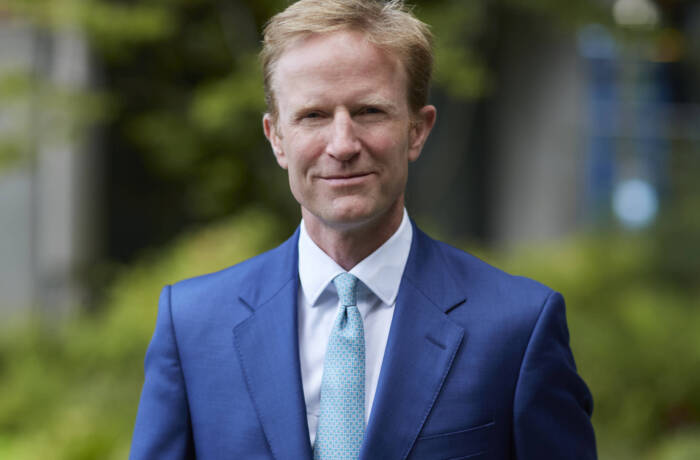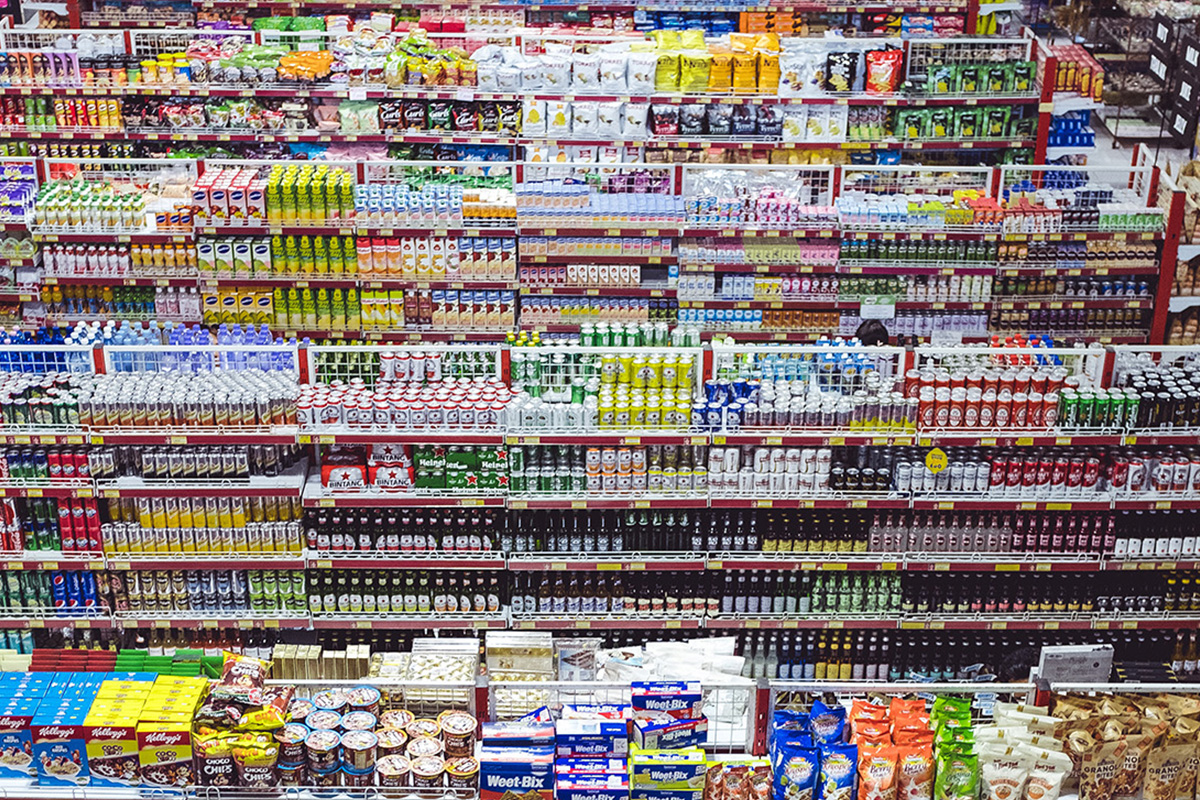
Unilever, one of the largest suppliers of consumer goods, has committed itself to sustainable ways of working throughout the whole company. Image by Bernard Hermant
Rebecca Marmot is Chief Sustainability Officer at Unilever, the consumer giant whose portfolio spans everything from Dove soap to Ben & Jerry’s ice cream. Under Marmot’s leadership, Unilever has made significant interventions in sustainability milestones like the Paris Agreement and the creation of the UN Sustainable Development Goals – yet, she says, much of the innovation is still to be done. Marmot tells Ella Johnson why companies must embrace transparency and collaboration in order to create a truly green value chain

Rebecca Marmot
LUX: What is essential to the success of a company’s ESG agenda?
Rebecca Marmot: Success relies on everyone being on board – from employees to c-suite to investors. For example, we put our Climate Transition Action Plan – which outlines how we propose to reach our net zero target – to an advisory shareholder vote. Over 99% approved it. Making it public increases our credibility, transparency and accountability and helps us engage with stakeholders.
We also recognise that we can’t do this on our own. We need to draw on the ingenuity and experience of experts and peers across the globe to meet our sustainability targets – from specialists creating plastic alternatives to suppliers supporting initiatives to protect and regenerate nature. We know that pioneering new practices requires partnership. We are also calling on governments to accelerate climate action by setting ambitious national renewable energy targets so that consumers can use our products at home with water heated by clean energy.
Follow LUX on Instagram: luxthemagazine
LUX: Can planet and profit ever truly go hand in hand?
Rebecca Marmot: The Unilever Sustainable Living Plan (USLP), which ran from 2010-2020, contained over 70 time-bound targets spanning issues from waste, water and greenhouse gas reduction, to supporting people with training around sustainable agricultural practices. Over 10 years there were notable achievements – including improving the health and hygiene of well over a billion people – as well as valuable lessons in what does and doesn’t work.
The USLP helped clarify our belief that sustainability can unlock superior performance. The business case is clear. Climate change and inequality are huge global challenges, but they also pose very specific risks to the future of our business: for instance, climate-related adverse weather disrupts supply chains and rising inequality limits prosperity and prospects.
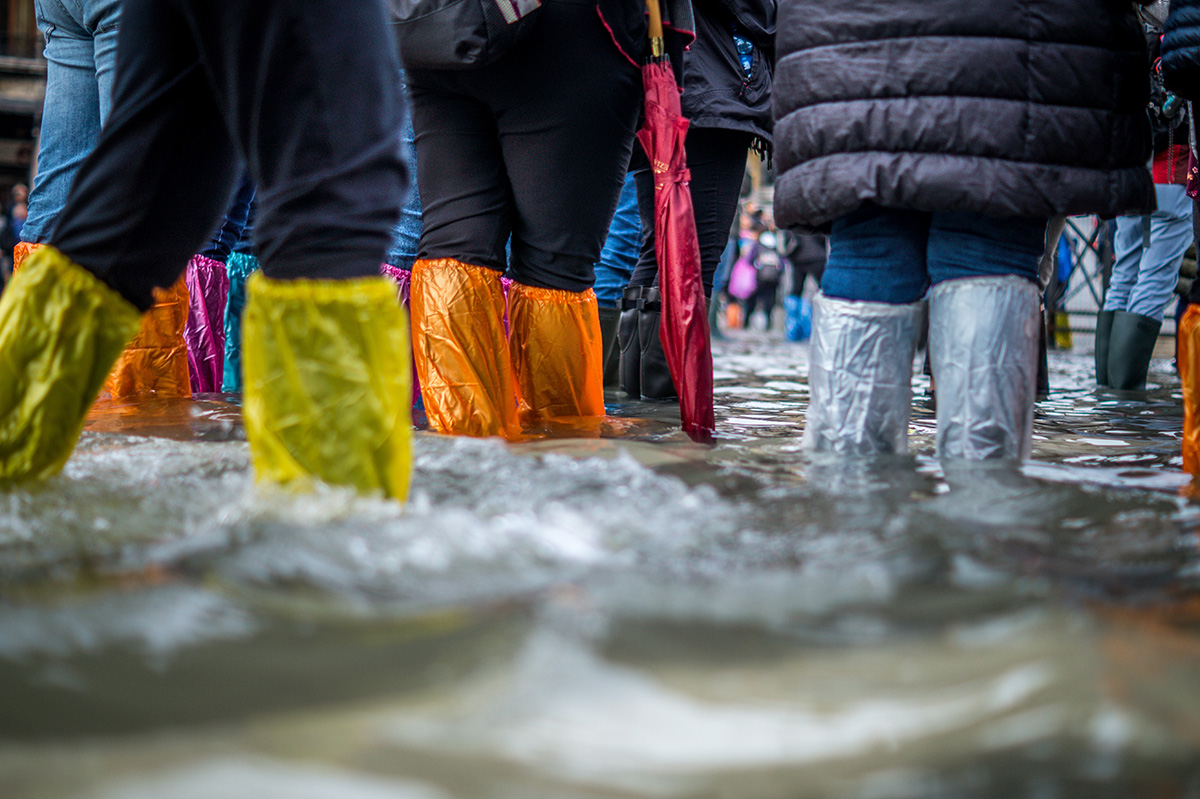
Climate change directly affects the success of a consumer goods businesses by disrupting supply chains. Image by Jonathan Ford
LUX: How do you avoid greenwashing?
Rebecca Marmot: We recognise that we are on a journey – and need to be transparent about our failures as well as our successes. We didn’t reach all of our USLP targets by 2020, but in falling short, we learnt new ways to approach and overcome challenges. For example, the need to engage in advocacy to decarbonise the grid – rather than just focusing on promoting shorter showers!
Here, reporting can play a useful role in tracking progress and preventing greenwash. We are calling for the adoption of high-quality, standardised non-financial reporting to ensure disclosures are consistent and comparable across companies and to facilitate allocation of capital to the most sustainable companies.
LUX: How is Unilever working to eliminate Scope 1 and 2 emissions – those generated by your operations?
Rebecca Marmot: First, we need to put our own house in order by transforming the way our factories run: investing in new technologies, increasing energy efficiency and switching to renewable energy sources. For instance, biogas generated from the manufacturing of Marmite helps power the boilers at our Burton site in the UK.
We are also innovating through our brands. Our Clean Future programme commits us to eliminating fossil fuel derived carbon from cleaning and laundry products by 2030, and we also recently launched the word’s first laundry capsule made from captured and recycled industrial carbon emissions in China in partnership with LanzaTech.
One of the biggest challenges is that the lion’s share of our emissions are outside of our direct control. About 60% of our emissions come from raw materials and packaging. So, to reach our target, we are working across our value chain and engaging suppliers, partners and consumers in our decarbonisation journey.
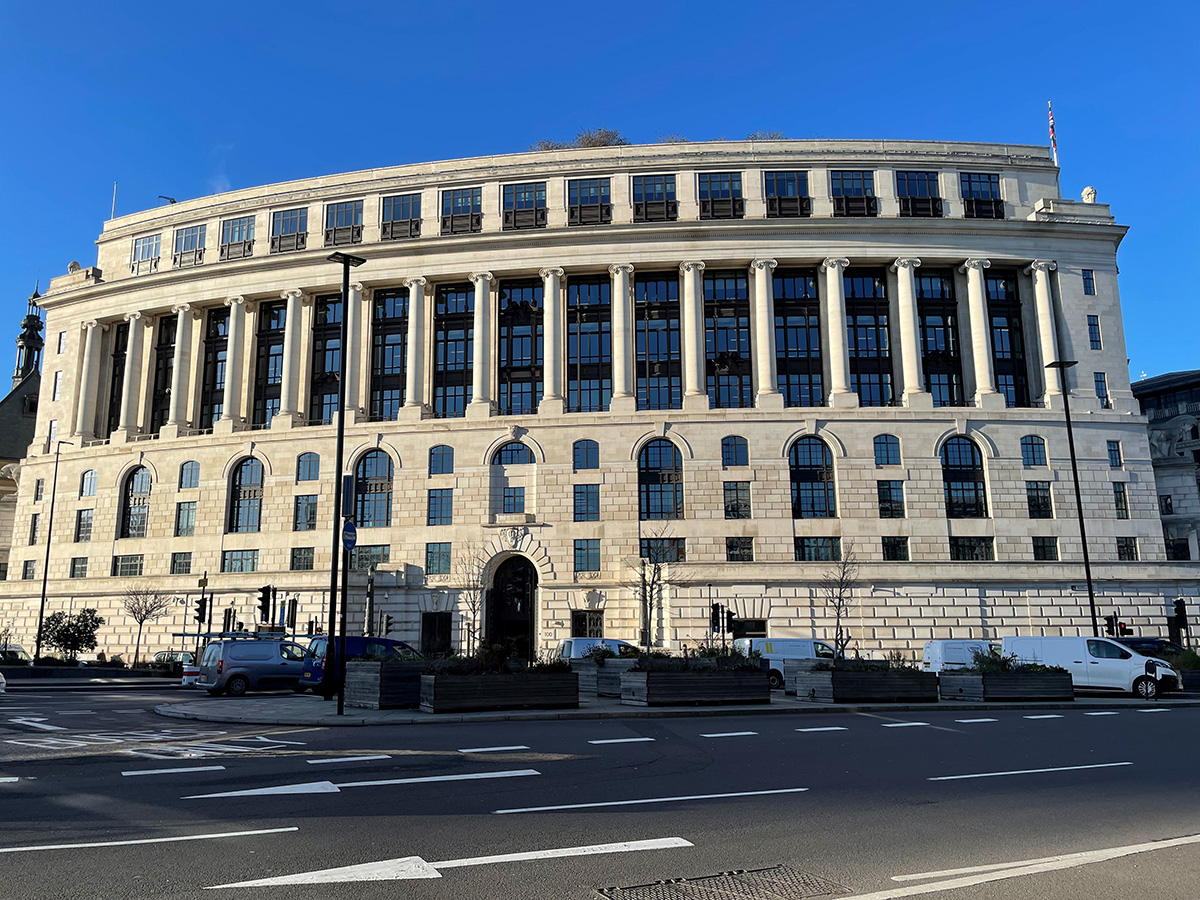
Unilever World Headquarters, London
LUX: Unilever has substantially more influence over its suppliers than consumers. How do you overcome that challenge?
Rebecca Marmot: When you take your Dove soap home and use it in your shower, then clean your shower with Cif bathroom spray, then reward yourself with a Magnum ice cream, the power used to generate the hot water and run your freezer is the area we have the least control over.
We’ve learnt over the last ten years that our ability to influence consumer emissions can be limited; we can’t control how long they spend in the shower or how they source their energy. But increasingly, consumers want to align their purchasing power with their values. We want to make it easy for them to choose our trusted brands – knowing that they are made with respect for the planet and people.
We can design products that help consumers use less carbon – like concentrated laundry detergents which enable people to wash their clothes at lower temperatures. Washing clothes at 30°C instead of 60°C cuts the GHG emissions per load by as much as 50%. We’ve also taken great strides to eliminate phosphates from our laundry products, one of our most GHG-intensive ingredients, which reduces CO2 emissions by up to 50% per consumer use.
LUX: How is Unilever addressing the ‘S’ of ‘ESG’?
Rebecca Marmot: COVID-19 highlighted vast social inequity and reaffirmed our focus on protecting lives and livelihoods. Last year, we committed to ensure that everyone who directly provides goods and services to Unilever earns at least a living wage or living income by 2030.
It also demonstrated global interdependences and the need to work together. At the beginning of the pandemic, Unilever and the UK government established a £100m partnership – The Hygiene and Behaviour Change Coalition (HBCC) – to provide products, infrastructure and education to help tackle COVID-19. Working with 21 NGOs and UN partners in 37 countries, HBCC has reached over 1.4 billion people and has recently been extended for a second phase. Bringing together the influence and expertise of Government and NGOs, with the brand reach and marketing power of business, has proved truly effective in spreading life-saving programmes.
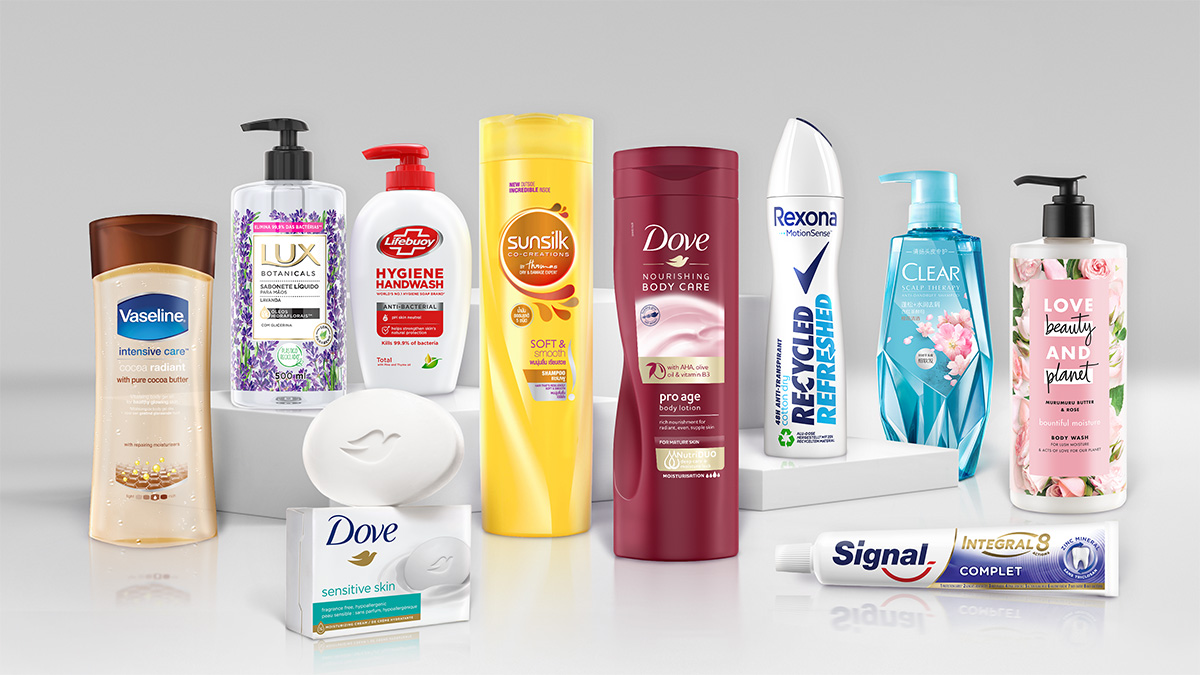
Unilever’s Positive Beauty row
LUX: Is there a risk that those who are last to take on the costs of a green transition will be winners in the short term?
Rebecca Marmot: Inaction is no longer an option. In a world where the effects of climate change and inequality are glaringly apparent, both ability and license to operate will become dependent on being sustainable. Research shows that consumers are increasingly shunning companies that aren’t responsible, and employees want to work somewhere that reflects their beliefs. Without action to make supply chains more sustainable, companies simply won’t be able to source the raw materials needed for their products and operations will be stalled by floods and extreme weather. Laggards will likely also be hit by taxes on carbon and virgin plastic which are certainly coming down the line.
We believe the growth opportunities in embracing sustainable business are immense. In our experience, brand purpose grows brand power, and brand power drives market share and sales growth. There is no trade-off.
LUX: Which leadership qualities are necessary to implementing a sustainability strategy while meeting the needs of shareholders?
Rebecca Marmot: Delivering superior performance while creating value for multiple stakeholders requires ingenuity, partnership and, above all, a clear, ambitious plan.
Given how interlinked everything is, we also need to shun silos in favour of systems thinking. For example, we take a holistic approach across climate and nature since we recognise that action to solve one crisis can help to address the other.
Read more: Richard Curtis on the Power of Pensions
We also need to be bold. Last year we established the €1 billion Climate & Nature Fund so that our brands can invest in projects that have a positive and meaningful impact. Knorr will have 50 regenerative agriculture projects over the next five years – supporting farmers and building resilient food chains of the future.
And we need to be innovative – identifying new ways to lower our impact without compromising quality or performance. For example, our R&D teams are using the latest technology to create new means of compacting and reducing the resources used to deliver our products and our Foods business is expanding our plant-based offerings to ensure that sustainable options become accessible to all.
Find out more: www.unilever.com


